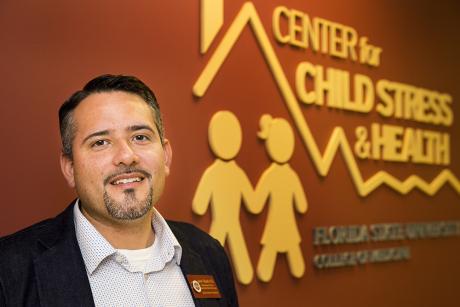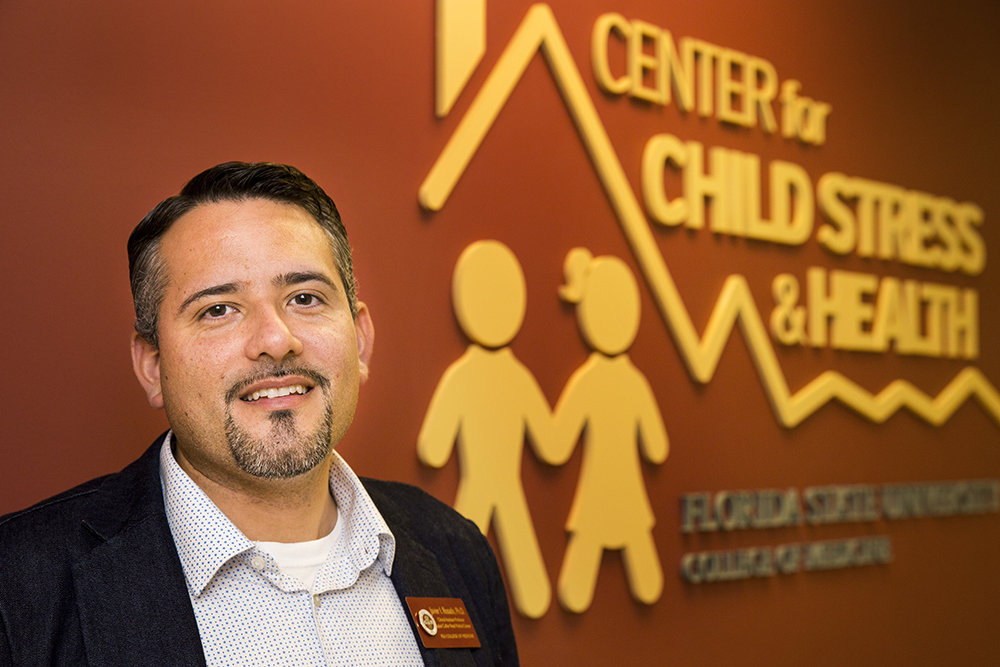KIDS WITH TOXIC STRESS


IMMOKALEE, Fla. — The Florida State University College of Medicine has been awarded a $3 million grant from the federal Substance Abuse and Mental Health Services Administration (SAMHSA) with a goal of illuminating the path to effective behavioral and physical health treatment for the children of rural and migrant farmworkers.
The five-year grant also recognizes the medical school’s Immokalee Health Education Site as a Treatment and Service Adaptation Center for the National Child Traumatic Stress Initiative network.
“This funding will support our effort to develop and validate instruments and interventions, to soundly study best implementation practices and to disseminate information and train personnel across the nation to serve children from rural and migrant farm-working families,” said Project Director Elena Reyes, the College of Medicine’s regional director for Southwest Florida.
Research shows that children who experience adverse childhood experiences without a buffer or other intervention have increased frequency of mental, physical and social problems now and later in life, including depression, PTSD, anxiety, COPD, diabetes, obesity, cancer and eating disorders. They’re also more likely to smoke, become alcoholic, use illegal drugs and attempt suicide.
The more adverse events they experience, the greater the likelihood and intensity of health problems. The situation is more acute for children of migrant farmworkers.
“Migratory lifestyles, poverty and overall consistent exposure to trauma — all are contributing factors,” Reyes said. “The parents are facing the same level of stress themselves, including depression, problems related to socioeconomic status, their own history of trauma and barriers to health care. They’re not able to provide the protective buffer needed by these young children.”
Few behavioral health interventions have been developed and clinically tested for effectiveness in populations treated by the College of Medicine faculty in Immokalee. Even if such interventions existed, workforce issues present additional obstacles.
More than 85 percent of designated mental health professional shortage areas in the United States are rural, and more than half of the nation’s counties do not have a psychiatrist, psychologist or social worker. Immokalee is a designated provider shortage area.
Through its Center for Child Stress and Health, the College of Medicine already has established universal screenings for trauma and exposure to toxic stress during annual well-child visits in Immokalee. Data are collected in a clinical partnership with Healthcare Network of Southwest Florida, whose patients from farm-working families have histories peppered with traumatic experiences.
“There is little existing literature about universal mental health screenings in pediatric primary care,” said Clinical Associate Professor Javier Rosado, the College of Medicine’s co-project director for the SAMHSA grant. “Children in rural areas face a number of challenges in getting treatment for behavioral and emotional problems, including availability of such services, accessibility and acceptability. In addition, migrant families are impacted by a scarcity of linguistically and culturally appropriate services.”
The College of Medicine’s research proposes to demonstrate how services can be provided for a specific traumatized population — young and preschool children from migrant farm-working families. Such children belong to three categories of a medically underserved population: rural, immigrant and poor.
“They live in the shadows of the health-care system, particularly the mental-health system,” said Reyes, a pediatric psychologist with specialties in Latino mental health and integrated care. “We are tapping into an area where existing data are severely lacking for how to screen Latino children from rural areas and get them appropriate and effective interventions.”
The College of Medicine’s objectives include implementing and evaluating the effectiveness of a screening protocol to identify trauma in children of migrant farm-working families and developing effective prevention and treatment strategies for children experiencing trauma. The college will also develop instructional materials on child trauma to train health-care providers and early-childhood educators and disseminate information on child trauma to systems serving young children.
“Our preliminary data are encouraging,” Rosado said. “We are seeing that it is possible to screen for toxic stress during a routine well-child visit and provide effective interventions.”
The Naples Children & Education Foundation (NCEF) has provided significant support allowing the College of Medicine to develop the workforce and infrastructure to address behavioral health needs in Immokalee.
The National Child Traumatic Stress Network was established by Congress in 2000 to improve access to care, treatment and services for children and adolescents exposed to traumatic events.
Photo: Javier Rosado, clinical associate professor for the FSU College of Medicine
###

